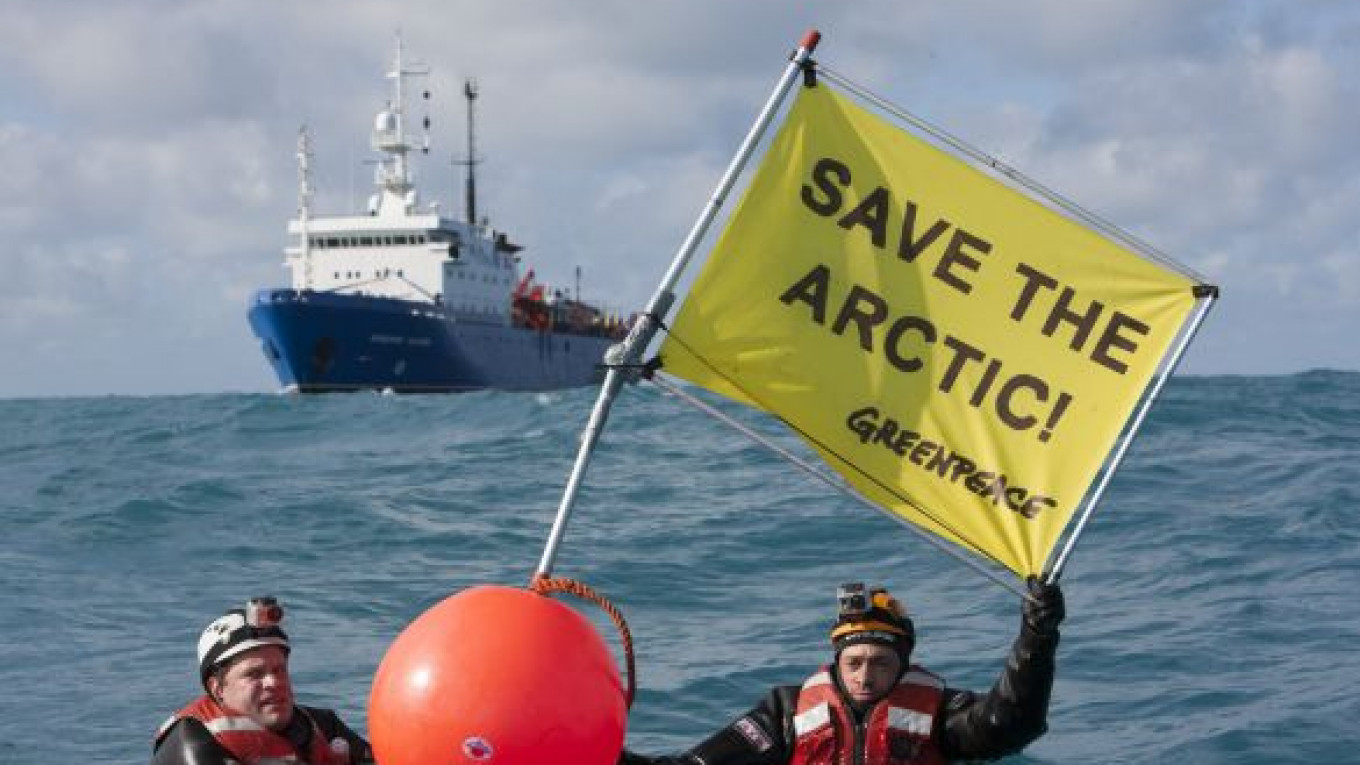STOCKHOLM — Russia has blocked a Greenpeace ship from entering Arctic waters where the environmentalist group was planning to protest actions against oil exploration activities by Rosneft and ExxonMobil, the group said Wednesday.
Russian authorities had denied the icebreaker Arctic Sunrise entry to the Northern Sea Route, citing questions over the vessel's ice strengthening, Greenpeace said in a statement.
It said the Arctic Sunrise had a higher ice classification than many of the more than 400 vessels that have been granted access to the Northern Sea Route this year.
"This is a thinly veiled attempt to stifle peaceful protest and keep international attention away from Arctic oil exploration in Russia," Greenpeace campaigner Christy Ferguson said in a statement.
"The Arctic Sunrise is a fully equipped icebreaker with significant experience of operating in these conditions, while the oil companies operating here are taking unprecedented risks in an area teeming with polar bears, whales, and other Arctic wildlife," she said.
Russia's Northern Sea Route Administration referred calls seeking comment to the Transport Ministry, which did not immediately respond to questions.
Greenpeace said it wanted to "expose" the offshore activities of Russian oil company Rosneft and U.S. partner ExxonMobil in the Kara Sea, north of western Siberia. The companies are preparing to begin drilling operations there next year.
Greenpeace and other environmentalists have warned that drilling in the remote and icy Arctic could lead to devastating spills, threatening fish and wildlife already under pressure from climate change.
Greenpeace activists have scaled offshore platforms in waters off Greenland and northern Russia in recent years, stunts that were carried out to draw attention to the oil industry's move into the Arctic.
U.S. officials estimate the region holds up to 13 percent of the world's undiscovered oil and 30 percent of its untapped natural gas. Climate change is expected to make those deposits easier to reach as the Arctic ice cap shrinks.
The melt is also opening up Arctic sea lanes like the Northern Sea Route, where shipping activities are growing rapidly.
A Message from The Moscow Times:
Dear readers,
We are facing unprecedented challenges. Russia's Prosecutor General's Office has designated The Moscow Times as an "undesirable" organization, criminalizing our work and putting our staff at risk of prosecution. This follows our earlier unjust labeling as a "foreign agent."
These actions are direct attempts to silence independent journalism in Russia. The authorities claim our work "discredits the decisions of the Russian leadership." We see things differently: we strive to provide accurate, unbiased reporting on Russia.
We, the journalists of The Moscow Times, refuse to be silenced. But to continue our work, we need your help.
Your support, no matter how small, makes a world of difference. If you can, please support us monthly starting from just $2. It's quick to set up, and every contribution makes a significant impact.
By supporting The Moscow Times, you're defending open, independent journalism in the face of repression. Thank you for standing with us.
Remind me later.






